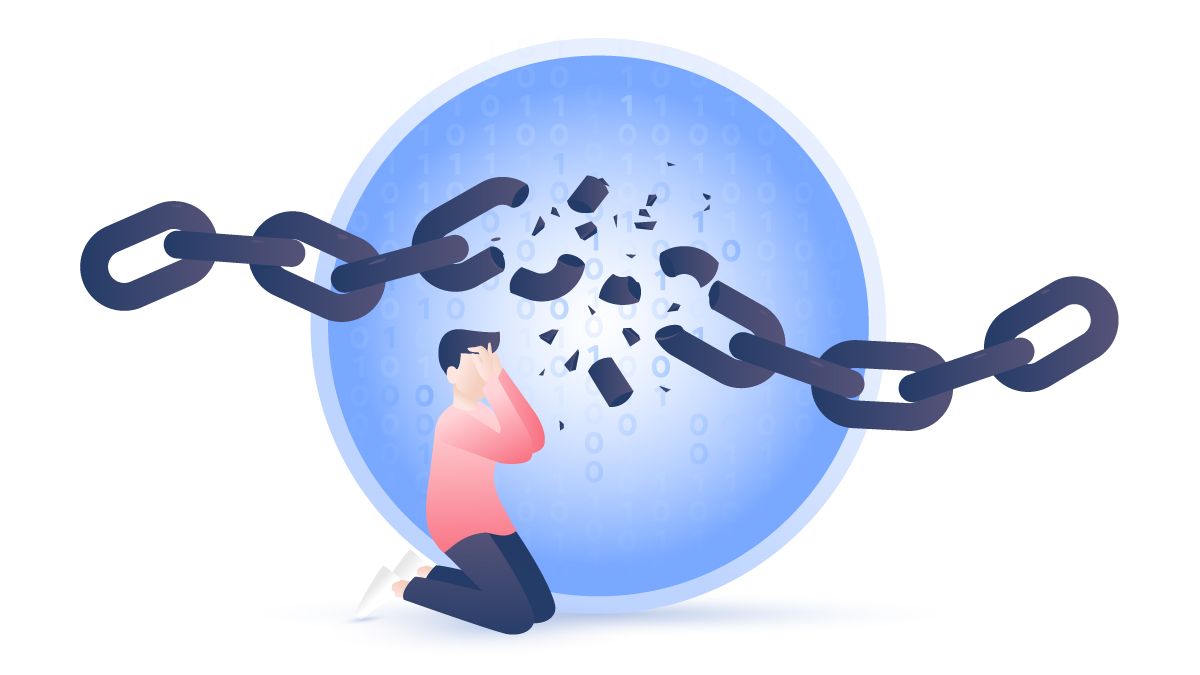What is quantum computing?
While some may think that computing has achieved its ultimate form, quantum computing takes it to a whole new level with perfect and precise calculations. But how does quantum computing works and what does it mean for the future of cybersecurity?

Quantum computing explained
Quantum computing is a branch of quantum mechanics, a discipline allowing a more multi-angled approach to our environment. Quantum mechanics evaluates not only the phenomena represented by definite values but also everything in-between and the resulting uncertainties.
As our universe doesn’t work in straightforward ways, quantum mechanics opens the possibilities for more precise calculations. So, it allows a much more accurate simulation of various complex scientific processes: for example, the complex movement of particles. Naturally, quantum computing transferred all these capabilities to the IT sector.
How does quantum computing work?
Ordinary computers use ones and zeros to operate. Every app or piece of software you use is a combination of these ones and zeros. While such a system works great in most situations, it doesn’t consider the in-between cases and the uncertain aspects of our surrounding world.
Quantum computing uses quantum bits (or qubits) that don’t have designated 1 or 0 values. They store a probability rather than a precise value. So, we don’t know the value of a qubit until we measure it. This ability is called superposition, and it signifies a transient state occupying no specific value and providing possibilities for more precise predictions and calculations.
Analysts often compare quantum computing to coin-flipping. When we catch the coin and look at it, we can surely understand the value, but can we evaluate it when it’s spinning? Is it heads or tails, or both? There are lots of similar ambiguities around us, and quantum computing helps to evaluate them better.
So, quantum computing extends the possibilities of ordinary one-zero systems. It can calculate every single possibility or path and also take into account all the present uncertainties. This possibility is called the qubit entanglement. Quantum computers can also simultaneously consider a large number of possible combinations and choose the best one. It can tackle tasks that ordinary computers may take thousands of years to solve.
How can we use quantum computing?
Quantum computers are not hidden in underground super-secret laboratories. In fact, they are more accessible than you may think. For example, you can use IBM’s 20 quantum computers through their IBM Cloud service. Google also heavily invests in quantum computing and welcomes contributions from the developer community.
Here are a few uses for quantum computing:
- Pharmaceutical experiments. Quantum computing helps medical researchers to calculate the best molecular and particle combinations, thus increasing the effectiveness of drugs;
- Quantum language processing. While currently machines can only process language based on its structural layer, quantum computing would consider connotations, humor, emotional layers, and implicit meaning in language processing. All this might help to tackle the cultural layer of the language;
- Environmental issues. Quantum computing can help to solve the traffic congestion problem by using quantum algorithms to optimize traffic signals in cities;
- Machine learning. Quantum computing can also increase the capabilities of artificial intelligence and machine learning.
Quantum computing and cybersecurity
Possible threats to encryption
Naturally, quantum computing provides cybersecurity with new challenges. Its powerful calculations can affect and decipher certain encryption algorithms, which means that a quantum algorithm can significantly decrease the strength of encryption.
But don’t worry — everything is not as scary as it sounds. Most reputable algorithms are quantum-safe. Quantum computers still find it tough to crack 256-bit encryption algorithms. It can reduce it only to 128 bits, which is impossible to crack down.
NordVPN uses the premium 256-bit encryption algorithm, so you can feel safe with us.
Enhances security
On the other hand, quantum computing can provide even stronger layers of protection for your data. Quantum algorithms can generate keys that are entirely random and illogical, and no one will be able to guess them mathematically. So, quantum devices can produce keys that behave in entirely unpredictable ways and are impossible to reverse-engineer.
Quantum computing weaknesses and threats
- Hackers can potentially use quantum computing. Imagine if such a powerful tool with decryption capabilities fell into the wrong hands. As quantum computing is getting more accessible, such a possibility is not unrealistic.
- Quantum computing machines are still quite sensitive to various external factors such as temperature or physical impact. So, these devices can potentially get damaged and, as a result, may not function properly. Also, you can’t transport them that easily.
Want to read more like this?
Get the latest news and tips from NordVPN
